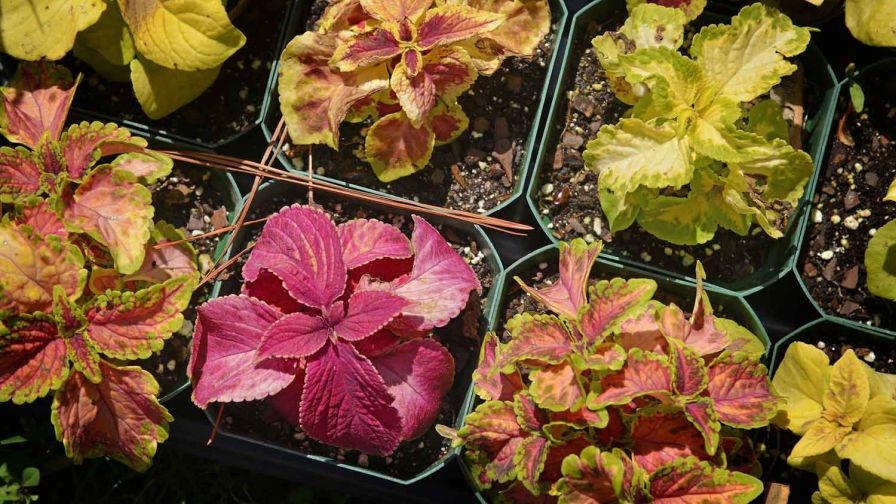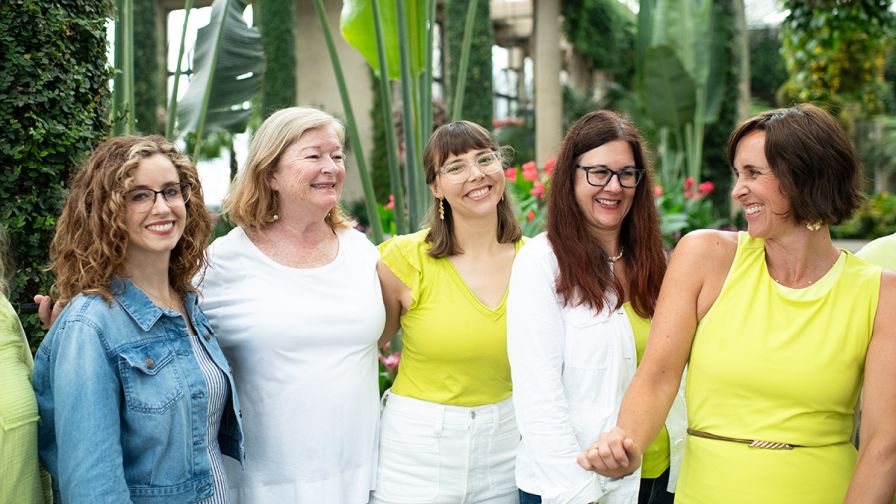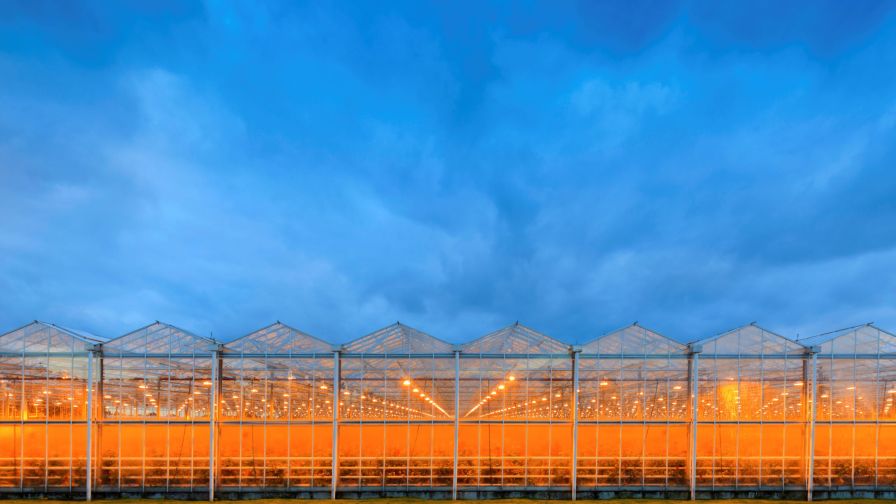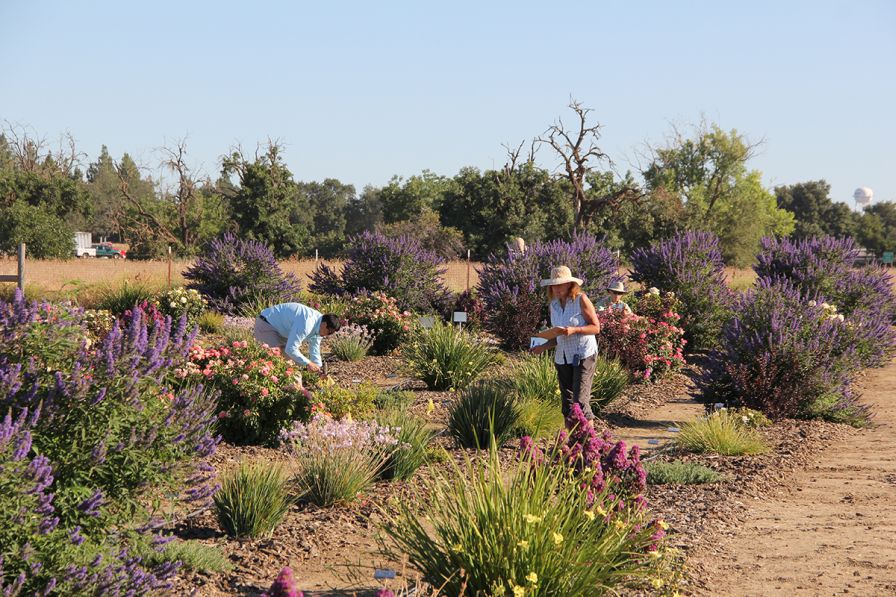Growing Globally
Demand for unrooted cuttings continues to be strong as growers seek low-cost inputs in the right quantities delivered just in time for their production schedules. Global producers who were once considered specialists have become one-stop shops, providing a full array of annuals, perennials, herbs and blooming potted crops in a single shipment.
Consider Syngenta Flowers, which represents the merger of Fischer with S&G Flowers under parent company Syngenta. Fischer began in Germany as a geranium specialist and added poinsettias and New Guinea impatiens. All three were staple vegetative crops. Then a partnership with Goldsmith Seeds brought a complete line of vegetative annuals.
Meanwhile, S&G Flowers had developed its line of vegetative annuals by breeding key products for Proven Winners and then launched its own A Cut Above unrooted line, which also included perennials. Staple crops were missing and S&G introduced geranium and New Guinea impatiens series the year before Syngenta acquired Fischer.
This is the first year we’re able to see the effects of their consolidated production. While last year Fischer produced between 325 million and 375 million cuttings a year, S&G produced 150 million. Combined, Syngenta Flowers is now producing between 400 million and 450 million cuttings, a reduction of 75 million cuttings, most likely due to redundancies.
Based in Basel, Switzerland, Syngenta is a publicly held world-leading agribusiness company. Its cuttings farms are in Ethiopia, Kenya, Portugal, Israel, Guatemala, Mexico and the Canary Islands.
Expansion Mode
Although Syngenta isn’t reporting expansion plans for next year, five of the Top 10 Cuttings producers indicated they will be adding to their facilities – Oro Farms in Guatemala, Florexpo in Costa Rica, Cohen Propagation Nurseries in Israel and the Germany-based GGG International in the United States and South America. German breeder-producer Dümmen will be adding more than 17 acres to its farm in Ethiopia, bringing that farm to nearly 80 acres. Dümmen also has 22 acres in Costa Rica and plans to be the first to build a cuttings farm in El Salvador.
“The new farm in El Salvador is running behind schedule, but our goal is to produce geraniums there in the 2009-2010 season,” says Dümmen’s Managing Director Perry Wismans. “Our strongest growth is in our new Savannah geranium line and Potunia petunias. The latter is gaining ground very fast.” He adds that he expects a new Garden Collection of spring annuals to be a growth area, along with producing varieties from fellow German breeder Westhoff.
Across the board, spring annuals are the biggest growth driver. Selecta First Class is seeing gains in flowering potted plants, most notably poinsettias in Europe. GroLink has been successful with nonflowering, accent type plants with striking foliage, like acalypha, graptophylum, alternanthera and coleus, a key product line.
GGG International is differentiating itself by promoting unique breeding lines, including double-flowered bacopas and a new cross between verbena and phlox called Velox. Cohen Propagation Nurseries in Israel is providing virus-free material and private stock services for many breeders.
Florexpo, the cuttings production arm of broker McGregor Plant Sales, is offering USDA-certified organic herbs. While many cuttings farms are certified for quality control, Florexpo is the only one with organic certification. The certification program of choice is the Dutch Naktuinbow (NAKT) program. Syngenta, GGG International and Cohen all have NAKT certifications. GroLink reports it follows NAKT protocols but is not certified. Geranium producers such as Fides, Syngenta, Selecta and Dümmen also have special certification from USDA, as a safeguard against introducing diseases specific to geraniums.
Containing Costs
The sharp decline in the U.S. dollar has made it less attractive for European companies to sell cuttings in the United States and the cuttings more expensive for U.S. growers. Farms in countries with currencies linked to the dollar are less affected by the erosion in value.
Reducing costs is the primary reason offshore farms exist. Our industry has moved most stock plant maintenance and labor required to propagate cuttings offshore and freed up our greenhouses for more efficient finished production that brings in dollars. Obvious draws are lower wages for workers and optimal growing climates. But fuel and transportation costs continue to be a great concern for offshore producers.
Syngenta has implemented a full-time logistics department to address shipping costs and make sure cuttings arrive stress free for both the plants and grower customers.
On the logistics side, more producers are investing and upgrading their information technology. Both Oro Farms and GroLink/Athena have invested in Picas Greenhouse Production Software, which has been popular with many leading young plant producers who root cuttings.
All our Top 10 Cuttings Producers agree delivering high quality and exceptional service at the right price is the key to success. Order fulfillment is what will separate the best from the rest. Wismans says Dümmen strives to be the most reliable and easiest supplier to work with.
“Dümmen has worked very hard to bring the claim rate back by delivering on time and good quality,” he says. “This has brought our claim percentage to under one half a percent, the best in our 40-year history. The gain we made here has been 100 percent added to our profit. “To be successful, we have to deliver a good, clean cutting on time, without changes to what has been confirmed. With the decreasing margins, there is no room for error.”








